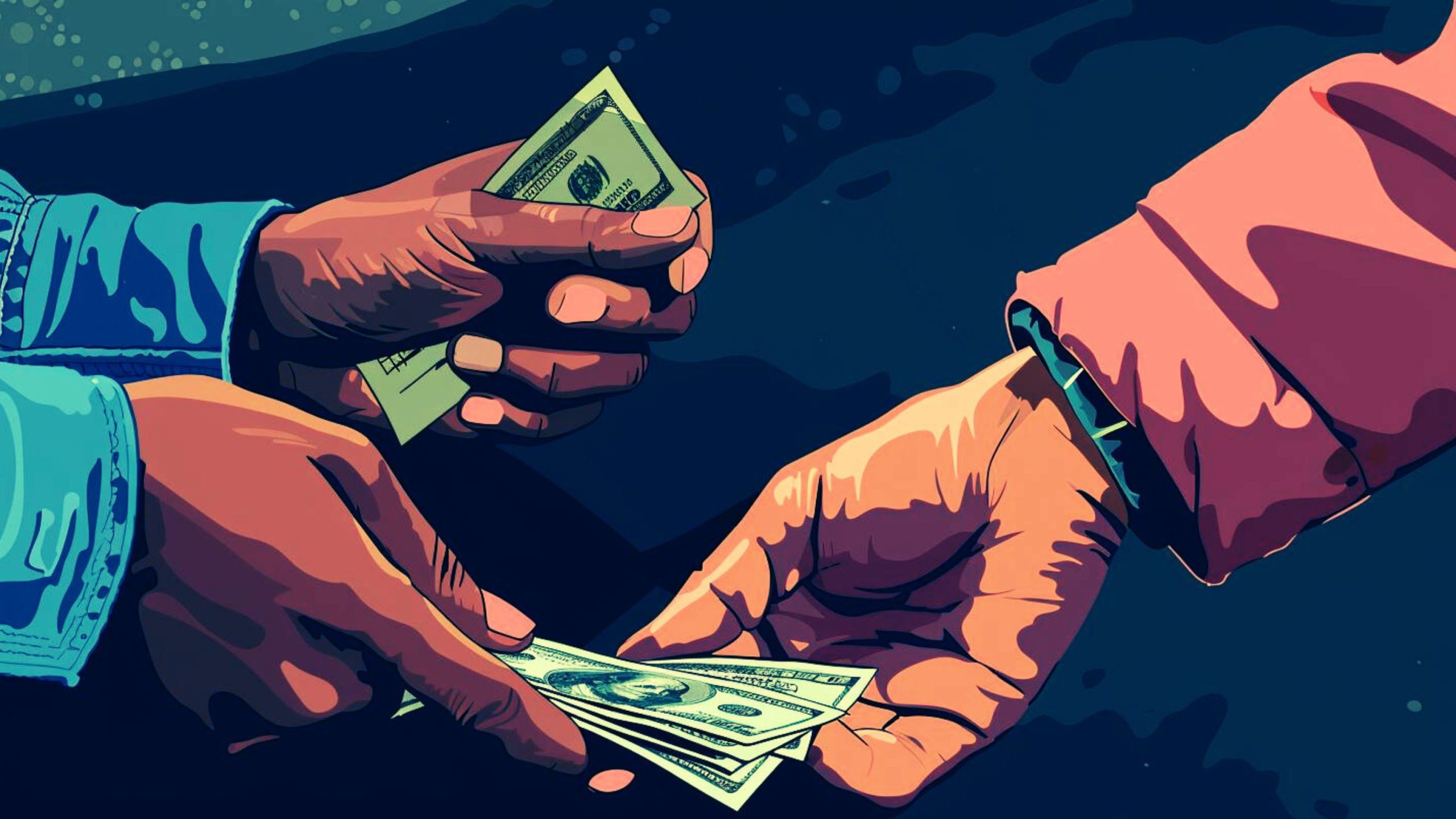The menace of “the War on Cash” is making steady headway across the board.
And that’s whether it concerns big-time international policy-makers pushing for total digitization of financial assets – or individual examples that showcase just how serious this threat is.
Here’s one such case: Elizabeth Dasburg and two others were denied the right to use cash to pay entry fee to the Fort Pulaski National Monument in Georgia, managed by the National Park Service.
It’s turned into, “parks, but no recreation” – because the victims of this violation of US law regulating the use of domestic currency have now opted for litigation.
Plain and simple, Dasburg and the two others believe it is still illegal in the US to refuse to accept the country’s legal tender. Or is it? That’s the question the US District Court for the District of Columbia will have to spell out.
Judging by the filing, the Fort Pulaski employees were equally indoctrinated against accepting cash, as they were trying to be helpful. The visitors were first told in no uncertain terms that only cards are accepted.
We obtained a copy of the complaint for you here.
And then, if – say they had no cards (that they might not want to use them doesn’t seem to have been a consideration) – they were instructed to go to a grocery chain like Walmart and buy a gift card.
However bizarrely and unnecessarily complicated this might sound – all the more ironic, because it appears the “explanation” for this policy is that cards are more “convenient” – that’s what Fort Pulaski wanted.
Cards. Of any sort. Things that can be tracked and tied to a person, in other words.
“By forcing people to use credit cards or digital wallets, under the guise of convenience, the National Park Service becomes a player in the surveillance state, undermining park visitors’ privacy right,” Children’s Health Defense (CHD) General Counsel Mack Rosenberg commented on the case – and the state of affairs.
CDH has decided to put its money where its mouth is and support the defendants’ case financially.
The National Park Service is said to have been working on cashless-only payment options for some years, the scheme now in effect in to close to 30 national parks, historic sites and monuments.
While those behind such things are always happy to present themselves as champions of “equality and diversity,” the reality looks quite different.
“Only half of low-income households have access to a credit card, according to a March 2022 Federal Reserve Bank of New York report,” CHD President Laura Bono said in a letter to the Park and Service CEO.
“Cashless Strongly Preferred, Please!” - okay. I’d get that. Makes the job a little easier. A little safer.
But have to wish the plaintiffs good luck on this one. And the disparity in who has access to cashless payment methods is a legitimate, fair point.
Tracking stuff aside, going cashless IS more convenient, for the vendor, not the consumer. The vendor no longer has to deal with keeping money on hand at multiple stations, the vendor no longer has to worry about change, or making sure everything balances each day, etc. It’s all much simpler for them, at the cost of consumer flexibility/choice.
and at the cost of consumer privacy
National Parks are the people’s resource, not the government’s. The government is a steward of the people. They should aim to make the parks as accessible as possible, not worry about how to make things more convenient for themselves at the cost of public access.
spoiler
asdfasdfsadfasfasdf
New York City MTA is moving away from MetroCards you can buy for cash to a system that lets [makes] you swipe a credit card or a smart device like a phone or watch. It’s going to make it much easier to track people.
shit. I complained about inserting a $20 and getting an uncountable fuck-ton of dimes as change. I hope this is not their fix for that problem. Sorry folks!
Plain and simple, Dasburg and the two others believe it is still illegal in the US to refuse to accept the country’s legal tender.
Says on dollar bills its legal tender for all debt. They don’t have a debt, they are attempting to buy something (in this case, entrance.), and the person they are purchasing from can ask for whatever they want however they want in that particular case.
If this was Disneyland, this would be open and shut. How that works with a government facility? I dunno for sure, thats beyond me. Court case makes sense to me in this instance, just to clarify things.
For private businesses, yes. Not the US government. It is legal tender in this country and all government functions should accept it.
You say “should”. And I agree. But my reading of the law in the past has been this distinction:
- debt payment (acceptance of legal tender is an obligation)
- point of sale payment (legal tender irrefutably /can/ be accepted but it’s not an obligation)
Indeed it’s an injustice that they apparently don’t break it down this way:
- debt payment
- point of sale payment (private sector)
- point of sale payment (public sector + public services monopolized by private corps [e.g. energy svc])
I wonder if the Universal Declaration of Human Rights will be cited by the plaintiffs, which says:
Article 21 … 2. Everyone has the right of equal access to public service in his country.
Unlike Europe, in the US banks are not obligated to give someone an account. So you can indeed have someone who is involuntarily unbanked, in which case excluding them from access public service would violate their human rights. Though it’s tricky because what convenience store is going to deny them a gift card? OTOH, if the park wants $7.50 to enter and the gift cards start at $15, then in effect they have to spend an unfair/unequal amount.
And then they have to pay monthly maintenance fees on said gift card, and they lose whatever amount of money is left over that they can’t spend because it’s not equal to exactly whatever they’re trying to buy costs. That’s assuming the national park even accepts these gift cards and doesn’t exclude them like many vendors do.
Ah right… that too. I forgot about that shit. I think California banned gift cards that lose value. So the plaintiff would have to buy the gift card from California. But then it would need to be free shipping. So the more we discuss this, the harder the state’s case gets.
Why is the Children’s Health Defense the ones fighting this? Thought they were too busy fighting against fluoride in the water and vaccinations?
So, if you’re too poor to have a checking account, or credit card, you can’t enjoy the national park? Cash is legal tender for all transactions. It says so right on the money.
There’s a restaurant in my city that proudly displays signs, “we are cashless!” yet they still have a tip jar at the “cash” register. I asked the employees about it and they said that it was the owner’s doing to be cash only, but they employees working the floor would never turn down a tip.
It’s a mixed bag - from a sellers point of view cashless is safer (less chance of being robbed), but it comes with a price (the bank takes a cut of every transaction).
Privacy-wise, I don’t much care if my own government wants to watch me (those poor bastards are going to see a lot of algebra). However, I strongly object to having my data being included in any form of advertising profile.
but it comes with a price (the bank takes a cut of every transaction).
Actually Visa offered small businesses a $10k incentive for refusing cash for a year. I’m sure that more than offsets their fees.
However, I strongly object to having my data being included in any form of advertising profile.
It’s worse than that. You probably wouldn’t like them to tell your auto and health insurance how much you spend on booze and smokes either. Or sell info to your spouse about any hotels you checked into in the same city you live in.
There is no GDPR in the US, so cash is extremely important.






